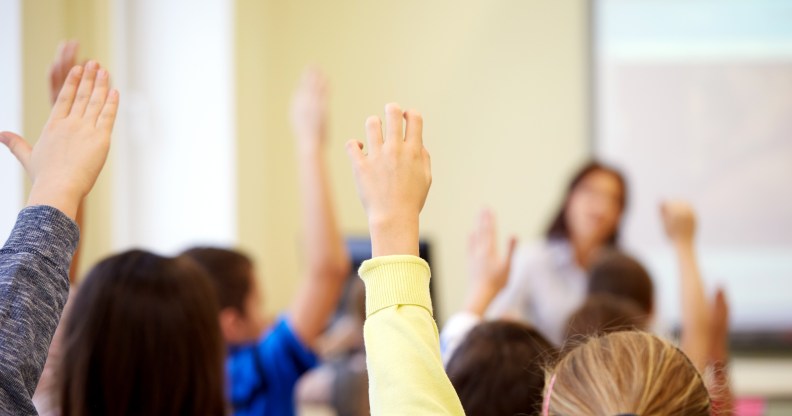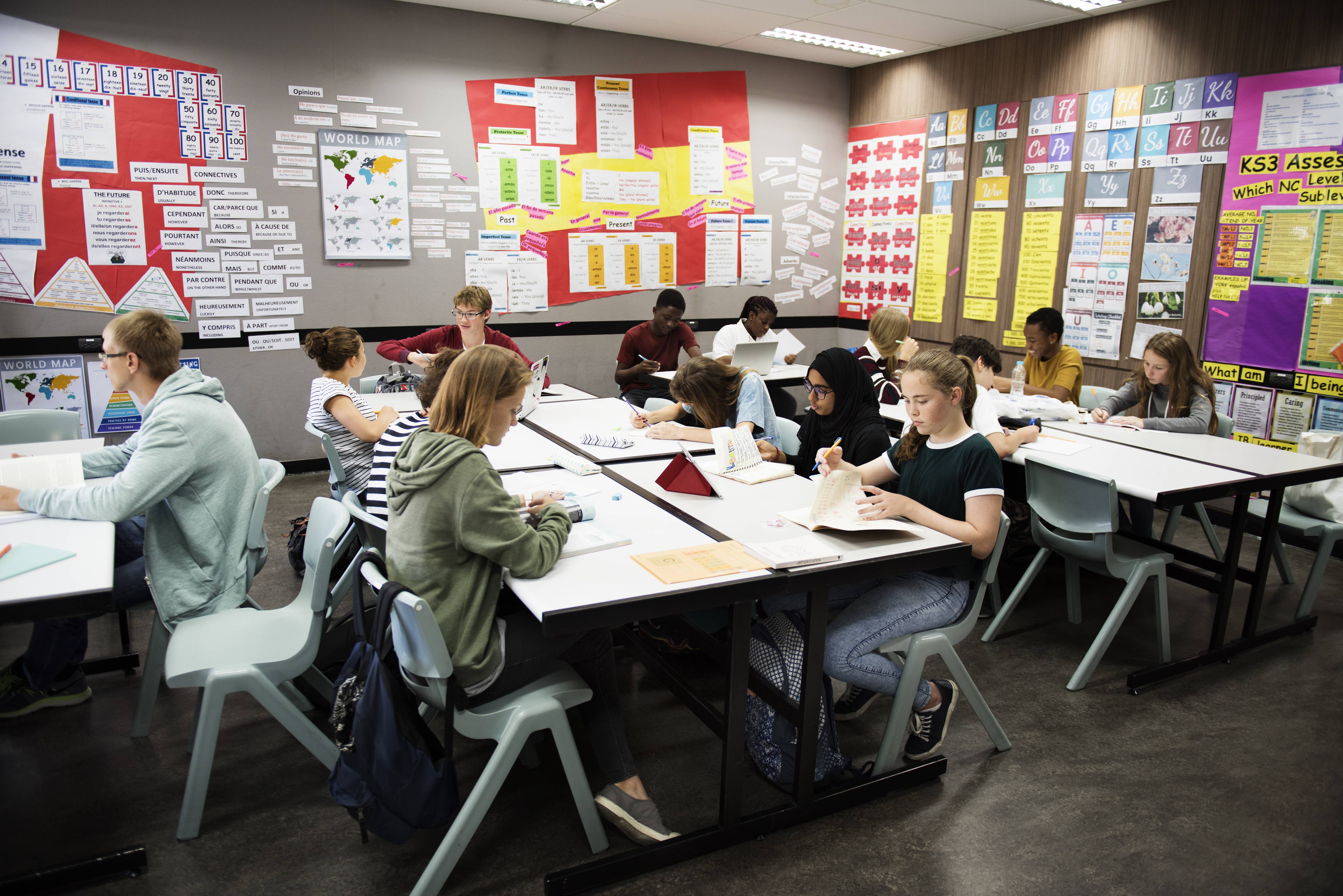LGBT teacher explains why she doesn’t blame other teachers for not coming out at school

New research has found that a shocking number of pupils hear anti-LGBT+ language in Scottish schools. (Envato)
A LGBT+ teacher has explained why she doesn’t blame other teachers for not wanting to come out at school..
Iesha Small, a former assistant head and maths teacher at a secondary school, said in the Guardian that at the beginning of her teaching career she was out to other staff, but not students.
She wrote: “I wanted to be a great maths teacher – why did I have to face the burden of being a role model for LGBTQ students too?
“This felt safe for me. I was teaching in a faith school. My colleagues were respectful, but I had nagging doubts: would the school leadership support me in the face of any comments from parents or students? I didn’t want it tested.”
In recent months, the Birmingham school protests have highlighted how much controversy still exists in combining LGBT+ acceptance and education.
Small explained that in her lifetime she has seen LGBT+ rights and acceptance change for the better and for the worse.
She had experienced the legalisation of same-sex marriage and the recent surge in transphobic hate crimes, and was still living with some “internalised homophobia”, the lasting impact of Section 28.
She described the nerve-wracking moment when she was interviewed for “an assistant headship in a comprehensive in a semi-rural area”, and discovered that her “potential future boss spoke warmly about the ethos of the school and the importance of his Catholic faith”.
She continued: “As a member of the senior team, I’d be working closely with this man. I suddenly thought: if he turns out to be a homophobe, this will be a problem.”
However, when Small told him she had recently had twins and that her partner had given birth, he simply said: “Oh, yes we have another teacher like you – she and her partner are going through IVF right now.”

Iesha Small is a former assistant head and maths teacher at a secondary school. (Envato)
LGBT+ teacher Iesha Small says onus is on schools to create a safe environment.
By the time she was an assistant head teacher, she had been teaching for 10 years and finally came out to a year nine class: “They hadn’t expected me to be gay and asked a bit about if I’d always known, but the lesson carried on as normal.”
Small said that “being out is not an event, it’s an ongoing process”, and she doesn’t blame any LGBT+ teacher for taking their time.
The advice she gives to other LGBT+ teachers includes: “Don’t feel guilty if you aren’t ready to be a role model for others,” and “If you don’t feel supported or valued as a teacher who is also LGBTQ, move to another school.”
However she said, ultimately, the onus is on the schools to create an environment that is safe for both staff and students to be open and honest about their gender and sexuality.
This year, Small published a book called The Unexpected Leader: Exploring the Real Nature of Values, Authenticity and Moral Purpose in Education, which “humanises school leaders and tells their stories”.

